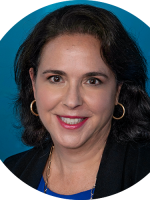Drug overdose is the number one cause of unnatural death in Virginia and the problem worsens each year. Southwest Virginia has some of the highest opioid abuse rates in the U.S. How can communities rebound from the ravages of opioid addiction? Virginia Tech professor Carlin Rafie, PhD talks to Angie Miles about her work helping communities confront and begin to recovery from the opioid crisis.
TRANSCRIPT
Angie Miles: Opioid abuse is a national health crisis. Virginia is far from immune, but there are people working to help the country, to help Virginia, to confront the crisis and begin to heal. One of those people is Dr. Carlin Rafie. She is a Virginia Tech researcher, whose work takes her statewide. Much of her effort has centered on Southwest Virginia which has been devastated by opioid abuse. Dr. Rafie joins us in the studio today. Welcome Dr. Rafie.
Carlin Rafie: Thank you for having me.
Angie Miles: So, you actually worked formally at VCU and a colleague there, Emily Zimmerman and yourself have been working in Martinsville with Engage Martinsville, correct?
Carlin Rafie: Correct.
Angie Miles: Now we know in Martinsville, they had the unfortunate distinction of being rated the number one place in the country for opioid prescriptions per capital, almost 400 per 100,000 people in 2017. That's high. Talk about the resilience that you see there and other places and people wanting to really take charge of this situation.
Carlin Rafie: They've really taken the bull by the horns, if I might say so, but I think this is happening in communities all over Virginia. There are many coalitions that have come together to address the issue to seek help. So once Martinsville realized the extent of the problem they had with opioids they formed a task force and that task force invited Engaging Martinsville, our community academic partnership there to help them evaluate the issue systematically and develop strategies to address the issue.
Angie Miles: So with your expertise and $200,000 in federal funding through AmeriCorps, you set out to help the community craft its response, four pivotal points, goals that they chose they wanted to focus on, what are those?
Carlin Rafie: The first was to set up a continuum of care for individuals coming into the emergency rooms in the hospitals that serve that area, get those individuals into the hands of peer counselors who then would link them and connect them back to the community services board where they would receive ongoing care for their substance use problem.
Angie Miles: And when you say peer counselors, we're talking about people who have themselves battled opioid addiction.
Carlin Rafie: Correct.
Angie Miles: And they are in recovery and they're there to help the next person who needs a hand.
Carlin Rafie: Absolutely.
Angie Miles: Okay. Drug courts, that's a second one, right?
Carlin Rafie: Right. So, the community had been thinking about bringing a drug court for some time, that court opened this year.
Angie Miles: And drug courts which help people to move towards treatment rather than moving towards incarceration.
Carlin Rafie: Absolutely, very important.
Angie Miles: Okay. And then the final two things deal with prevention efforts, what are those?
Carlin Rafie: So they have established now within their school systems a prevention education program that now is being taught in all of the schools in Martinsville and in Henry County, and in addition to that they needed to get the word out to the community for those who need help and were seeking help. And so, they developed an awareness campaign that they implemented as well.
Angie Miles: Very good. Thank you so much for joining us today. That's Dr. Carlin Rafie, a Virginia Tech Researcher who is specializing in helping communities to rebound from opioid addiction problems.



